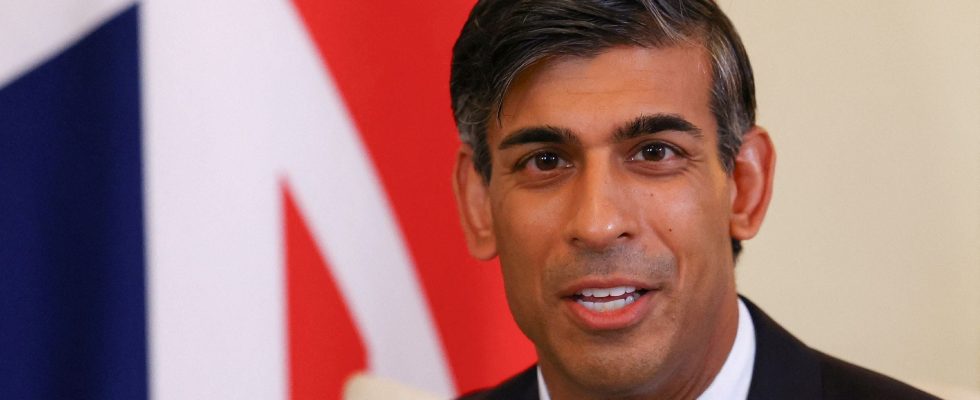“Europe’s first black leader!” This is how the appointment of Labor Vaughan Gething as Prime Minister of Wales made headlines across the Channel last March. This young fifty-year-old born in Zambia, to a Welsh veterinarian father and a Zambian mother who raised chickens, therefore replaced Mark Drakeford at the head of one of the four nations that make up the United Kingdom. He completes the decidedly diverse picture of British leaders, since his Scottish counterpart – until his very recent resignation – was none other than Humza Yousaf, a practicing Muslim born to Indo-Pakistani parents.
With Rishi Sunak, the first British leader to have taken an oath on the Bhagavad Gita, the sacred text of Hinduism, they are the showcase of triumphant British multiculturalism. Only the Prime Minister of Northern Ireland, Michelle O’Neill, does not come from a so-called visible minority. And yet, one could easily argue that the rise to power of the first Catholic and Sinn Fein leader in Northern Ireland since the partition of Ireland in 1921 constitutes a much more profound development than a simple change of color. skin at the head of government. But there you have it, British multiculturalism is mainly based on the visibility of diversity. This is its strength – and its weakness.
Ethnic kaleidoscope
From the top of a double-decker bus, the streets of London have always seemed to the passing visitor like a marvelous mixture of colors, an attractive kaleidoscope where everyone wears traditional costume and religious accessories and all seem to live together in good harmony and in the greatest tolerance. British police officers of Sikh origin wearing high turbans maintain order with their veiled Muslim colleagues, it is the norm and no one finds fault with it.
This multiculturalism is based on several principles. First of all, the one presented in 1966 by the Minister of the Interior at the time, Roy Jenkins: “We do not need in our country the model called ‘melting pot’ where individuals would be made on the same mold ( …) I would define our integration system not as a process of assimilation, but as one of equality of opportunity and cultural diversity in an atmosphere of mutual tolerance.” This idea implies a certain cultural relativism, but also the conviction that a foreigner cannot become a true Englishman, as Jenkins said then. We are born English, we do not become English. We might as well not give newcomers the illusion that they could one day achieve it.
Ignorance of the other
But multiculturalism is based on another essential fact: the absence of separation between the Anglican Church and the State. Religion is understood across the Channel as a culture, and its political aspect is often obscured. Each new MP thus takes an oath in Parliament on the sacred text of his religion, as Rishi Sunak did on the Bhagavad Gita or, if he is an atheist, can opt for a solemn declaration. Whatever happens, practicing or not, each deputy pledges allegiance to the Crown, to the Sovereign who is also head of the Anglican Church, and to the royal family.
This coexistence, with respect for the beliefs and customs of each person, was mainly built in ignorance of the other – or in indifference towards them -, resulting in the juxtaposition of relatively impermeable communities with, sometimes even, parallel legal systems such as Islamic courts (also called “local councils of Sharia”) to settle private disputes. This relative compartmentalization between communities explains a relatively low rate of mixed marriages, of around 7% in the United Kingdom compared to 14% in France in 2015 (according to the BBC and INSEE). Over time, this cohabitation has shown its limits and its flaws. Even before the attacks in London, perpetrated by young British Islamists, Tony Blair’s government was already thinking through the voice of Trevor Phillips, chairman of the Commission for Racial Equality, about “putting aside the multiculturalism which has had its day and no ‘encourages more than separatism.’ As early as 2004, he advocated no longer glorifying difference, but on the contrary “to say to everyone by hammering it home: you are British, you are British!” and to demand in exchange “the adherence of all to common values and rules”.
Islamist anti-Semitism
However, a generation and several attacks later, it is still the multiculturalism of the 1960s that prevails across the Channel. Political scientist Rakib Ehsan, author of Beyond Grievance: What the Left Gets Wrong about Ethnic Minorities, today we see a state of more or less open war between communities, for example between Muslims and Hindus. In 2022, the city of Leicester experienced weeks of violence and riots between these two populations. Last September, in Peckham, in the south-east of London, it was Indo-Pakistani traders who were targeted by part of the population of African origin. “This is reminiscent of the racist rhetoric used by Amin Dada in Uganda in the 1970s. He confiscated businesses from Ugandans of Indian origin before expelling them and their families from the country,” he continues.
As for the current conflict in the Middle East and its cohort of pro-Palestinian demonstrations in the streets and universities of the United Kingdom, they underline, according to Ehsan, “the animosity of a part of the British Muslim community against the Jews” and the existence of “Islamist anti-Semitism”. For the political scientist, the error of the various British governments since Tony Blair has been to favor “identity politics, by nature dangerous and a source of division.” The likely arrival of Keir Starmer’s Labor Party to power in the next elections should not change this worrying situation. Quite the contrary. If the figure of Shabana Mahmood, Keir Starmer’s probable future Minister of Justice, a practicing Muslim who grew up in Saudi Arabia and a pro-Palestinian activist, already worries some, it is above all the risk of establishing social and religious determinism (identity politics) in principle of government which makes people shudder across the Channel.
.
